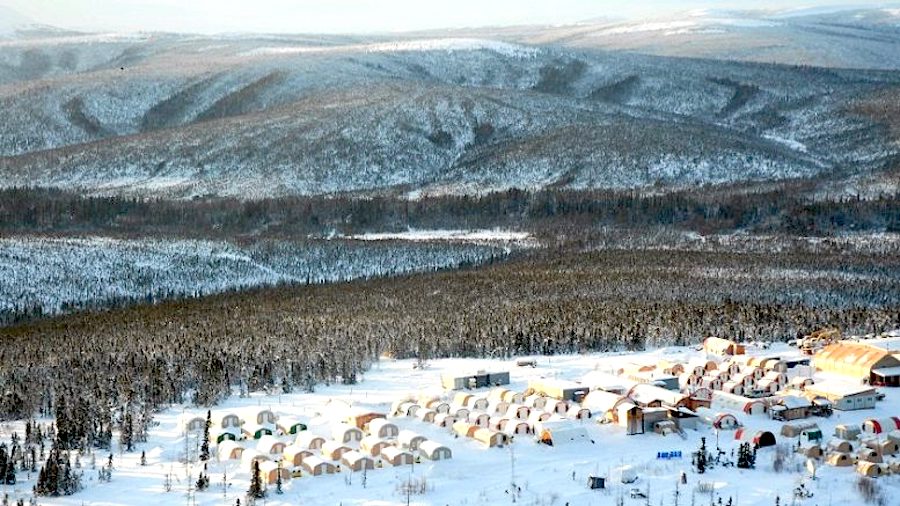Alaskans asked for feedback on one of the world’s largest gold projects

The Alaska Department of Natural Resources is inviting residents of Yukon-Kuskokwim Delta to submit their comments regarding Barrick Gold (TSX, NYSE:ABX) and NovaGold Resources’ (TSX, NYSE-MKT: NG) Dolin project by August 7, 2018.
The public is being asked to review and provide feedback on Donlin’s reclamation and closure plans, as well as the miners’ plans to pay for cleaning up the mine waste under the waste management permit. The documents were released back on July 9, 2018.
The reclamation and closure plans refer to the objectives and techniques under which the lands disturbed will be reclaimed once resources have been exhausted at the mine. For example, a periodic third-party environmental audit shall be completed during the final year of the permit term or sooner if final closure starts during the permit term.
Donlin Gold, owned in equal parts by subsidiaries Novagold Resources Alaska and Barrick Gold U.S., is proposing the development of an open pit, hard-rock gold mine in southwestern Alaska, about 10 miles north of the village of Crooked Creek.
One of the world’s largest, highest grade, known gold deposits, Donlin contains 39 million ounces of gold in the measured and indicated (M&I) resource categories and is expected to produce approximately one million ounces of gold per year for about 27 years.
Once the mine is closed, Donlin Gold is proposing to allow the open pit to fill with water and become a lake over a period of many years. The company says that before any water is released, it will be treated to meet water-quality standards.

Also within its reclamation plans, Donlin expects to pump excess water from a tailings storage facility to the pit lake. The tailings area will then be covered with rock and gravel and the tailings storage facility, along with the waste rock facility and other disturbed areas, will be reclaimed by being re-contoured, covered with soil as needed and seeded with a grass mix.
But before the mine is exhausted it first needs to go into production. This process, which requires an investment of about $6.7 billion, is expected to take about four years. However, Donlin still has a long way to go in the permitting process before construction can begin, as more than 100 permit applications are needed.
Some of those permit applications involve reclassifying currently classified lands, classifying lands that are currently unclassified, and classifying lands outside of an area plan which currently have no classification.
The land where the project is situated belongs to The Kuskokwim Corp., a for-profit corporation representing 10 villages. The mineral rights are held by Calista Corp., the Alaska Native corporation for the Yukon-Kuskokwim region. When and if the mine is built, Calista would share 70 per cent of its royalty revenues with other Alaska Native regional and village corporations.
{{ commodity.name }}
{{ post.title }}
{{ post.date }}




Comments